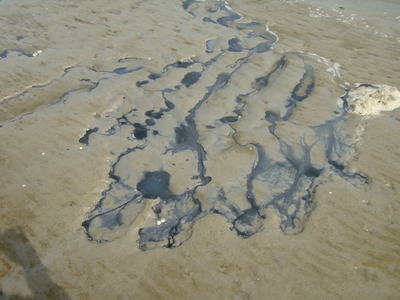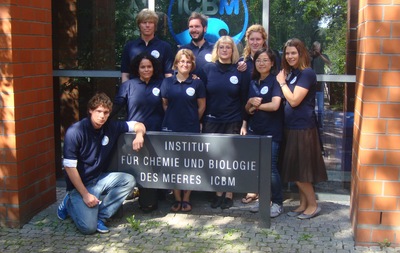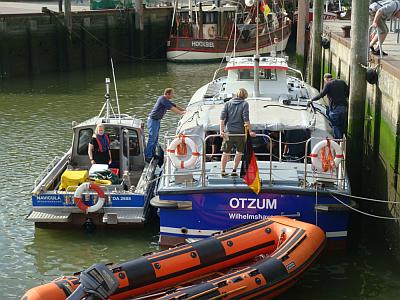
Institut für Chemie und Biologie des Meeres (ICBM)
SUMMER SCHOOL 2011 COMPLETED
ICBM Summer School 2011
Tidal flats are an important feature of many coastlines affected by tides in various climate zones of the world. They belong to the most productive natural ecosystems on earth and play an important role in global biogeochemical cycles. Therefore, knowledge of the ecological and biogeochemical processes in tidal areas is one keystone to predict the future of coastal systems in the light of global change and increasing exploitation.

Based on the experiences of the DFG Research Group on BioGeoChemistry of Tidal Flats, which ran from 2001 to 2009, participants will benefit from the multidisciplinary approach of the ICBM-researchers. The course will provide a fundamental understanding of important processes in tidal flats, considering sedimentology, the microbial world, chemical and biological interactions, and mathematical modelling. Practical exercises will focus on pore water and sediment sampling, analytical procedures, hydrological measurements and data analysis.
The main topics of the summerschool are:
- Introduction to the unique back-barrier tidal flats in the southern North Sea
- Investigation of sedimentological, geochemical and microbiological processes
- Geophysical methods based on stationary and mobile measurements
- Fluxes of dissolved organic matter and suspended particulate matter
- Trace metals and nutrient dynamics
- Bacterial communities and microbial activities
- Temporal and spatial circulation patterns
- Seasonal variations and extreme events
- Modelling the biogeochemistry of the tidal flat ecosystem
- Dynamics of food webs
- Bioinvasion


